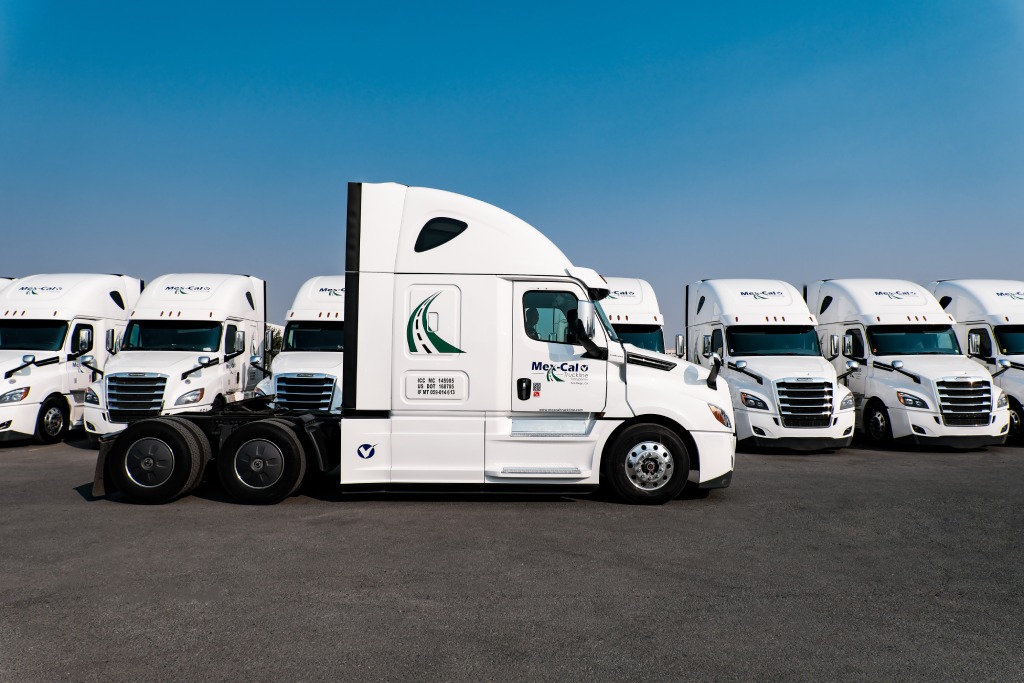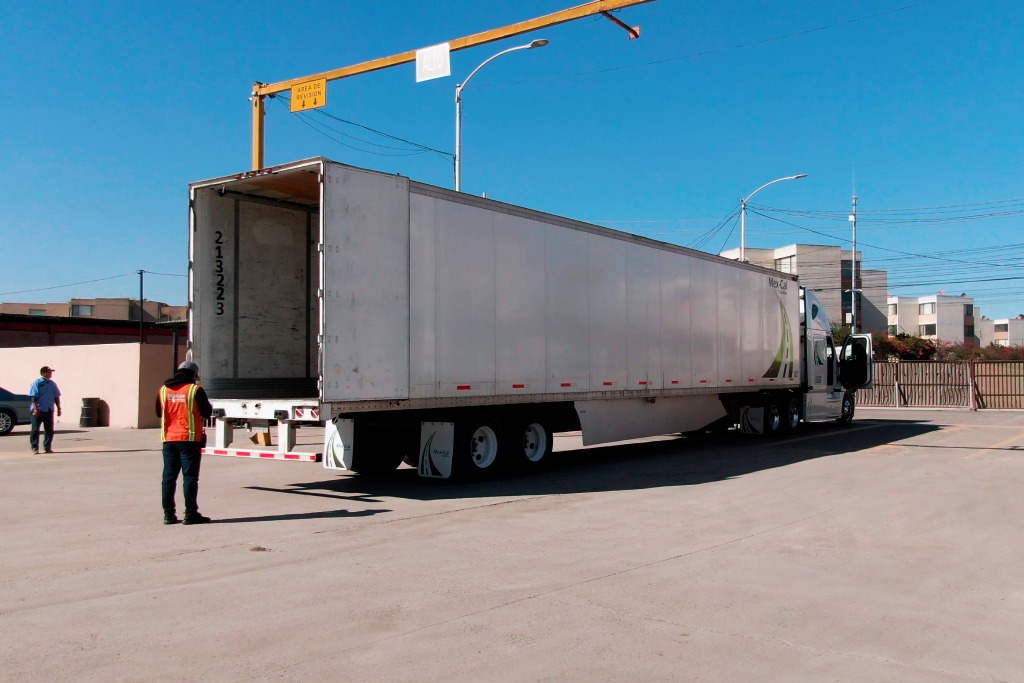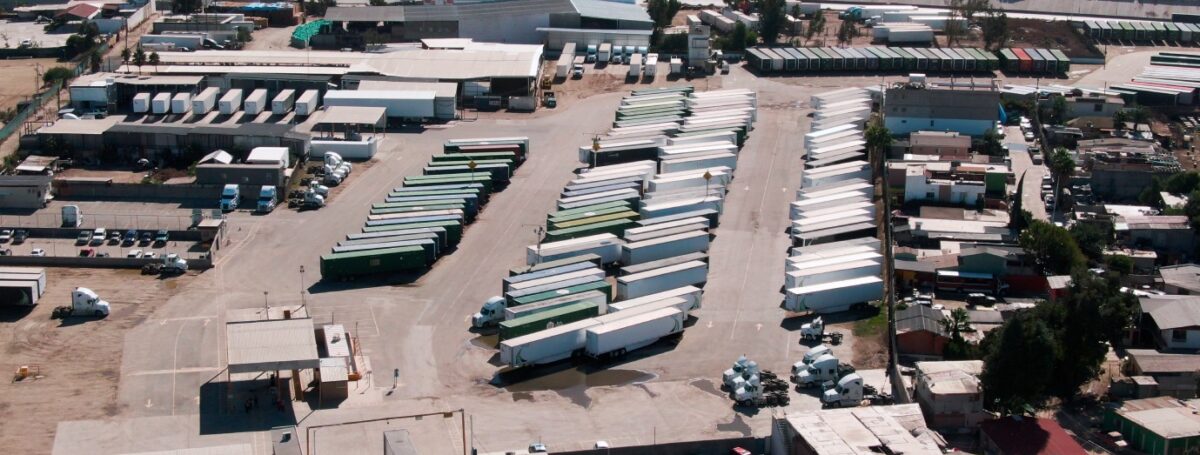How Trucking Companies Work: A Comprehensive Guide
In an era where efficient transport of goods is vital to the global economy, understanding how trucking companies operate is more crucial than ever. These companies are essential to supply chains, moving products from manufacturing sites to markets. Particularly, in regions such as San Diego and Tijuana, where cross-border logistics play a significant role in California-Mexico freight transportation, the operations of San Diego trucking companies and Tijuana transportation solutions are pivotal.
Their logistics services facilitate both local and international trade, making them key players in the transport industry.
This comprehensive guide will explore the operational frameworks of trucking companies, emphasizing their importance in sustaining trade and economies. From the basic workings, such as how Tijuana and San Diego logistics services manage cross-border trade, to the complex regulatory environment they navigate, each aspect will be covered. Furthermore, readers will examine the various types of trucking companies, covering their unique roles within logistics services, transportation technology, and customs brokerage. By the end, their multifaceted operations and critical contributions to robust supply chains will be better understood.
The Importance of the Trucking Industry

| Importance of Trucking | – Essential to supply chains |
| – Handles 72.6% of U.S. freight by weight | |
| – Generated $940.8 billion in revenue in 2022 | |
| Employment | – Employs 8.4 million people |
| – Inclusive workforce: 8.1% women and 46% minority drivers | |
| Operations | – Fleet Management: Uses advanced software for efficiency |
| – Scheduling and Deliveries: Optimized by technology | |
| Role of Technology | – Enhances safety and efficiency |
| – Utilizes GPS, telematics, AI, and automation | |
| Regulations | – Governed by FMCSA and state-specific laws |
| – Requires CDL certification and training | |
| Types of Trucking Companies | – Private Carriers: Serve own logistical needs, e.g., Walmart |
| – For-Hire Carriers: Transport goods/people for others, e.g., ATS, Prime | |
| – Operational Scope: Local (in-state), Regional (multi-state), National (country-wide) | |
| Cross-Border Logistics | – Vital for regions like San Diego and Tijuana |
| – Companies like Mex-Cal Truckline facilitate cross-border trade | |
| Impact on Economy | – Contributor to national and international economies |
| – Supports supply chains and consumer access to products | |
| Future Outlook | – Evolution and resilience essential for global commerce |
| – Companies focused on security and efficiency boost supply chains |
The trucking industry is pivotal in maintaining the flow of goods across various sectors, significantly impacting national and international economies. Without trucking, essential supplies, materials, and products would fail to reach businesses and consumers, effectively stalling the economy.
Economical Impact
Trucking is a substantial economic contributor. It is responsible for moving a staggering 72.6% of the nation’s freight by weight. The industry generated $940.8 billion in gross freight revenues in 2022, equating to 80.7% of the nation’s freight bill. The sector’s ability to transport 11.46 billion tons of freight annually highlights its critical role in sustaining supply chain dynamics.
Employment Opportunities
The trucking industry is also a major employer. In 2022, there were approximately 8.4 million people employed in trucking-related jobs, excluding self-employed individuals. This includes a diverse range of roles beyond driving, such as logistics support, vehicle maintenance, and various administrative positions within trucking companies. Employment in this sector is inclusive, with women making up 8.1% of drivers and nearly 46% of drivers coming from minority backgrounds. These statistics reflect the industry’s role in providing jobs and promoting workforce diversity.
Trucking companies are essential to the economy not only because they ensure the continuous movement of goods but also as a source of livelihood for millions. The industry’s significance is highlighted by its resilience and adaptability in facing economic fluctuations and regulatory challenges.
How Trucking Companies Operate

Fleet Management
Effective fleet management is crucial for optimizing the performance and efficiency of trucking companies. Fleet managers handle tasks such as scheduling maintenance and ensuring regulatory compliance. Advanced fleet management software enhances fuel usage and reduces operating costs significantly. Real-time GPS tracking and IoT-enabled telematics solutions capture a wide range of fleet data, enabling proactive management and preventing costly breakdowns.
Scheduling and Deliveries
The scheduling and delivery process in trucking companies requires meticulous planning and coordination. Technology plays a pivotal role, with systems like Syntelic Route Planning optimizing delivery routes for efficiency and timely deliveries. Digitalized dispatch systems enhance communication across the supply chain, leading to more organized and efficient operations.
Role of Technology
Technology has transformed how trucking companies operate. GPS and telematics systems provide critical data for real-time decision-making, while automation and AI-driven solutions improve operational efficiencies and safety. These advancements support functions from route optimization to driver performance monitoring, altering the trucking industry landscape.
Rules and Regulations

Federal and State Laws
Trucking operations in the United States are governed by comprehensive regulations to ensure safety, security, and efficiency in the transport sector. The Federal Motor Carrier Safety Administration (FMCSA), a branch of the Department of Transportation (DOT), regulates interstate and intrastate commercial driving operations, detailed in 49 CFR Parts 300-399, covering operational aspects from vehicle maintenance to driver qualifications.
Each state also implements its regional regulations affecting trucking operations. For instance, states like Nevada, Washington, and Oregon have set specific rules regarding vehicle dimensions, driver conduct, and safety measures.
Driver Certification and Training
Obtaining a Commercial Driver’s License (CDL) is a fundamental requirement for truck drivers in the United States. Prospective drivers must pass rigorous written and skills tests. The CDL certification process ensures that drivers have the necessary knowledge and skills to operate large commercial vehicles safely.
Training is a critical component of the certification process, with entry-level drivers required to undergo comprehensive programs, including theoretical and practical elements. The Entry-Level Driver Training (ELDT) standards, specified by the FMCSA, mandate that drivers complete training at registered facilities. This training covers a wide array of topics, ensuring drivers are well-prepared for the job’s demands.
By adhering to these stringent rules and regulations, trucking companies comply with legal requirements and contribute to a safer transportation network. Proper training and certification help mitigate risks associated with commercial trucking.
Types of Trucking Companies
Trucking companies are categorized into private carriers and for-hire carriers, each serving distinct purposes. Additionally, the scope of operations can vary from local to regional and national scales.
Private Carriers
Private carriers manage transportation exclusively for their own goods. These carriers typically operate within the company’s logistical needs, moving products from manufacturing locations to warehouses, stores, or directly to customers. Examples include Walmart, Sysco, and Ashley Furniture. Unlike for-hire carriers, private carriers do not require FMCSA operating authority since they do not transport goods for other entities.
For-Hire Carriers
For-hire carriers, in contrast, are paid to transport goods or people that do not belong to them. This includes a wide range of operations from trucking companies hauling property for a fee, to services like hotel shuttles. For-hire carriers must obtain appropriate authority, often indicated by an MC Number, to operate legally. Examples include ATS, Prime, Bison, Old Dominion, and Swift, which may operate under exclusive agreements with shippers.
Local, Regional, and National Carriers
Trucking companies’ operational scope can be classified based on their geographical area—local, regional, or national. Local truck drivers typically operate within a single state and are usually home every night. Regional drivers cover a broader area and often spend multiple days on the road. National carriers operate across the entire country, handling long-distance hauls requiring extensive time away from home.
Understanding these distinctions helps stakeholders navigate the trucking industry, aligning their logistic needs with the appropriate type of company.
Conclusion
Throughout this article, we explored the intricate workings of trucking companies and their essential role in the global economy, particularly in freight transportation between the U.S. and Mexico. We delved into operational facets, from fleet management and technological enhancements to regulatory environments and specialized training. Moreover, we discussed the types of trucking companies, their geographical scopes, and their vital role in both local and global supply chains.
Reflecting on the trucking industry’s landscape, companies like Mex-Cal Truckline exemplify excellence in cross-border logistics. Their comprehensive logistics solutions, extensive fleet, and commitment to security and efficiency underscore their significant impact on international trade and supply chain reliability. As such, the continued evolution and resilience of these companies are key to the prosperity of global commerce and the countless industries and consumers they serve.






